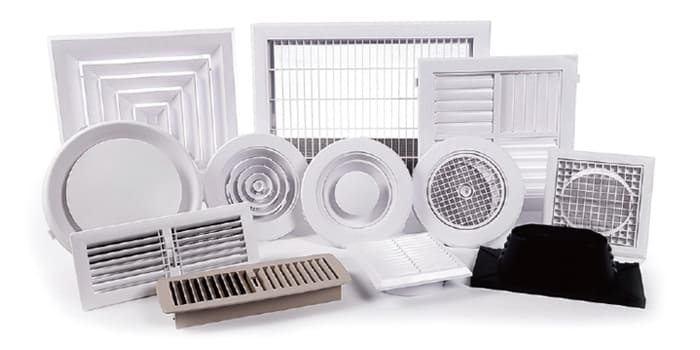Air diffusers are essential to any home or office HVAC (heating, ventilation, and air conditioning) system. They help distribute air evenly throughout the space, ensuring every room gets the proper air. Choosing a suitable air diffuser is crucial because it can affect your HVAC system’s performance and the occupants’ comfort. Here, we’ll walk you through the factors to consider when selecting an air diffuser and help you make an informed decision.
1. Size Matters
The size of the air diffuser is one of the most important factors to consider. The diffuser’s length should be proportional to the room’s size and the HVAC system’s capacity. A small air diffuser in a large room will not distribute air effectively, while a large air diffuser in a small room will produce too much airflow, causing discomfort.
2. Type of Air Diffuser
Different air diffusers are available in the market, each with unique characteristics. Some of the most common types of air diffusers are:
- Ceiling diffusers: These diffusers are installed in the ceiling and are suitable for larger rooms.
- Floor diffusers: These are installed on the floor and are ideal for smaller spaces.
- Wall-mounted diffusers: These are mounted on the wall and perfect for rooms with limited floor space.
3. Style
The style of the air diffuser is also an important consideration. The diffuser’s style should match the room’s decor and architecture. A modern diffuser may not look good in a traditional space, while a conventional diffuser may not look good in a contemporary room.
4. Material
Air diffusers are made from aluminum, steel, and plastic materials. The material of the diffuser should be durable and long-lasting. It should also be easy to clean and maintain.

5. Noise Level
The noise level of the air diffuser is also an important consideration. Some air diffusers produce more noise than others. Choosing one that makes minimal noise is essential if installing the diffuser in a bedroom or conference room.
6. Airflow Direction
Air diffusers can distribute the air in different directions, such as up, down, or sideways. The airflow direction should follow the room’s layout and the position of the HVAC system. If the HVAC system is above the room, a ceiling diffuser that distributes air downwards would be ideal.
7. Airflow Pattern
The airflow pattern of the air diffuser is also an important consideration. Some diffusers circularly distribute the air, while others linearly spread the air. The airflow pattern should follow the room’s layout and the position of the HVAC system.
8. Aesthetics
Air diffusers come in various styles and finishes, so you can choose one that matches the décor of your room. Some diffusers are designed to be visible, while others are designed to be hidden. You can choose from various finishes like white, black, silver, or gold.
9. Energy Efficiency
Energy efficiency is an important consideration when choosing an air diffuser. An energy-efficient diffuser will help reduce energy consumption and save on energy bills.
10. Maintenance and Cleaning
Finally, consider the maintenance and cleaning requirements of the air diffuser. The diffuser should be easy to clean and maintain, and the filters should be replaceable and readily available. Regular maintenance and cleaning will ensure the diffuser continues to operate efficiently and prevent the buildup of dust, dirt, and other contaminants affecting indoor air quality.

Choosing a suitable air diffuser for your home or office requires careful consideration of several factors. By considering the size of the diffuser, the type of diffuser, the style, material, noise level, airflow direction, airflow pattern, and energy efficiency, you can select an air diffuser that will provide optimal comfort and airflow while complementing your room’s decor.
Consulting with a professional is always a good idea if you need help determining which air diffuser suits your space. An HVAC contractor can assess your needs and recommend the best diffuser for your home or office.


